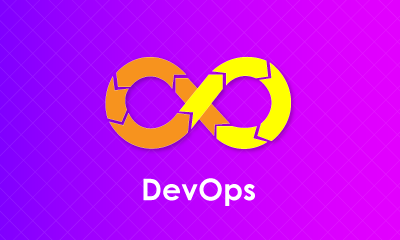If you're looking for Puppet Interview Questions for Experienced & Freshers, you are in right place. There are a lot of opportunities from many reputed companies in the world. According to research Puppet is has a market share of about 3.0%. So, You still have the opportunity to move ahead in your career in Puppet. Mindmajix offers advanced Puppet Interview Questions 2024 that help you in cracking your interview & acquire a dream career as a Puppet Developer.
Puppet Interview Questions And Answers
1. Puppet Vs Ansible
| Feature | Puppet | Ansible |
| Server Nodes | PuppetMaster Servers | Any machine with inventory can serve |
| Workflow | PULLs resources from PuppetMaster | PUSH workflow to work with resources |
| Resource management | Top-down or Resources applied randomly | Top-to-Bottom approach |
| Language Extensibility | Built and tested with Ruby | Built on Python |
| Syntax | Ruby's subset of DSL is used | YAML Files |
| Template Language | Based on RUBY's ERB | Based on Jinja2 |
| DevOps tool Support | Puppet supports DevOps Tools | Ansible supports DevOps Tools |
2. What is Puppet?
A puppet is a configuration tool that is used to automate administration tasks. Puppet Agent(Client) sends requests to Puppet Master (Server) and Puppet Master Push Configuration on Agent.
| Explore Puppet Tutorial for more information |
3. What are Manifests?
Manifests, in Puppet, are the files in which the client configuration is specified.
4. What is Module and How it is different from Manifest?
Whatever the manifests we defined in modules, can call or include into other manifests. Which makes easier management of Manifests. It helps you to push specific manifests on a specific Node or Agent.
5. Command to check requests of Certificates?
puppetca –list (2.6)
puppet ca list (3.0)
| If you would like to Enrich your career with a Puppet certified professional, then enrol in our “Puppet Training” Course. This course will help you to achieve excellence in this domain. |
6. Command to sign Requested Certificates
puppetca –sign hostname-of-agent (2.6)
puppet sign hostname-of-agent (3.0)
7. Where Puppet Master Stores Certificates
/var/lib/puppet/ssl/ca/signed8. What is Factor?
Sometimes you need to write manifests on conditional expression based on agent-specific data which is available through Factor. Factor provides information like Kernel version, Dist release, IP Address, CPU info and etc. You can define your factor also.
9. What is the use of etckeeper-commit-post and etckeeper-commit-pre on PUPPET AGENT?
etckeeper-commit-post: In this configuration file you can define command and scripts which executes after pushing configuration on Agent
etckeeper-commit-pre: In this configuration file you can define command and scripts which executes before pushing configuration on Agent
10. What is Puppet Kick?
By default Puppet Agent request to Puppet Master after a periodic time which is known as “run interval”. Puppet Kick is a utility that allows you to trigger Puppet Agent from Puppet Master.
11. What is MCollective?
MCollective is a powerful orchestration framework. Run actions on thousands of servers simultaneously, using existing plugins or writing your own.
12. Describe the most significant gain you made from automating a process through Puppet?
“I automated the configuration and deployment of Linux and Windows machines using Puppet. In addition to shortening the processing time from one week to 10 minutes, I used the roles and profiles paradigm and documented the purpose of each module in README to ensure that others could update the module using Git.
The modules I wrote are still being used, but they’ve been improved by my teammates and members of the community.”
13. Tell me about a time when you used collaboration and Puppet to help resolve a conflict within a team?
The development team wanted root access on test machines managed by Puppet in order to make specific configuration changes. We responded by meeting with them weekly to agree on a process for developers to communicate configuration changes and to empower them to make many of the changes they needed.
Through our joint efforts, we came up with a way for the developers to change specific configuration values themselves via data abstracted through Hiera. In fact, we even taught one of the developers how to write Puppet code in collaboration with us.”
14. Which open source or community tools do you use to make Puppet more powerful?
Changes and requests are ticketed through Jira and we manage requests through an internal process. Then, we use Git and Puppet’s Code Manager app to manage Puppet code in accordance with best practices.
Additionally, we run all of our Puppet changes through our continuous integration pipeline in Jenkins using the beaker testing framework.”
 On-Job Support Service
On-Job Support Service
Online Work Support for your on-job roles.

Our work-support plans provide precise options as per your project tasks. Whether you are a newbie or an experienced professional seeking assistance in completing project tasks, we are here with the following plans to meet your custom needs:
- Pay Per Hour
- Pay Per Week
- Monthly
| Name | Dates | |
|---|---|---|
| Puppet Training | Mar 07 to Mar 22 | View Details |
| Puppet Training | Mar 10 to Mar 25 | View Details |
| Puppet Training | Mar 14 to Mar 29 | View Details |
| Puppet Training | Mar 17 to Apr 01 | View Details |

Ravindra Savaram is a Technical Lead at Mindmajix.com. His passion lies in writing articles on the most popular IT platforms including Machine learning, DevOps, Data Science, Artificial Intelligence, RPA, Deep Learning, and so on. You can stay up to date on all these technologies by following him on LinkedIn and Twitter.
















